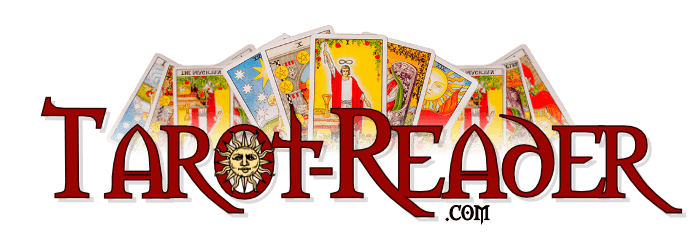Four of Cups
Suit: Cups
Element: Water
Function: Emotions, love, spirituality, imagination
A young man sits under a tree in contemplation and meditation. There are three cups in front of him, and a mystic hand comes from a cloud offering him one. However, he ignores them all, sitting and contemplating. The sky is clear blue, the color of the spirit and mind, and the grass is a lush green, the color of life. In the distance is a mountain, the symbol of stability and permanence. He’s dressed in a muted green, symbolizing stifled life, and red, the color of magick and passion, and blue, the color of the mind.
It’s unclear whether the man doesn’t realize that he’s been offered a cup, or whether or not he’s just passively refusing it. Either way, he’s made a choice to be alone under the tree, contemplating lofty things above this world.
The cups represent emotions, love, togetherness, imagination, and creativity, but they also represent spirituality, particularly the spirituality that one acquires through giving of themselves. Here, the young man neither takes nor gives. Even though there’s a miracle happening right in front of him, and he’s been given a divine gift, he shuts his eyes. If only he opened them for just a moment, he’d see that there’s more to enlightenment than isolating one’s self; that enlightenment doesn’t necessarily mean being away from the world and being disengaged from it.
The Cup represents love, and this is what the man is missing. The Four of Cups card shows what happens when one tries to find everything only within themselves. Humans are not meant to be solitary creatures, and even though it is good to contemplate, this is not all there is, and that growing as a person means learning to give and take.
Thus, the Four of Cups shows what happens when we miss the opportunities right in front of our face because we’re so engrossed in our current idea of the right way to do things or the way we want to do things. This is often like the rigid idealism we have as youth when we think we know everything and are enamored with our own abilities to think. Anyone who has lived beyond their youth knows the regret of forgoing those sweet opportunities staring us in the face because we were too concerned with being right.
When the Four of Cups is Reversed:
When reversed, the Four of Cups indicates that the querent will have to work for what they want, because even if opportunity is right in front of their face, it isn’t immediately for the taking. The Four of Cups reversed can thus mean that the querent isn’t entirely or sincerely self-focused and contemplating, but rather doing it for show or to appear more spiritually developed than they actually are.
This card reversed can also indicate a querent who is intentionally avoiding reaching out and avoiding emotional connection, even when others reach out to them and give them love. The querent either actually wants to be alone or is afraid to get involved emotionally.
In a three-card reading, this card means…
Past: In the past, the querent spent most of their time in their own head, eschewing intimacy and ignoring the opportunities around them.
Present: Currently, the querent is spending most of their mental energy on introspection and doesn’t see the opportunities for intimacy in front of them.
Future: In the future, the querent is going to retreat from the world and spends time in contemplation, possibly giving up opportunities to connect with others.
